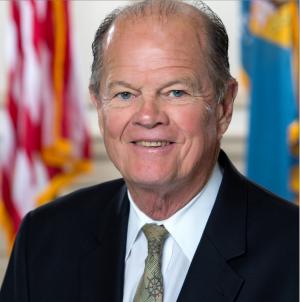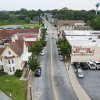The COVID-19 pandemic has fundamentally changed our way of life, not just here in Delaware, but across our country and around the globe. We all are still adapting to these changes and are attempting to navigate this situation in the safest way possible.
The Delaware General Assembly is not immune from these circumstances. Governor Carney’s State of Emergency instructs everyone to remain at home unless absolutely necessary, requires that we all maintain social distancing of at least six feet, and directs us to avoid gatherings of more than 10 people.
The General Assembly convening at Legislative Hall would be in direct contrast to that order. On a typical session day, hundreds of people fill Legislative Hall, with more than 1,700 coming in and out on June 30 last year. With that and the governor’s order in mind, we took the health and safety of the public, our staff and our legislators into consideration when we decided to postpone session indefinitely.
Claims that the General Assembly has not been active during these past several weeks are flatly untrue. Delaware legislators are in constant communication with officials at all levels of government - including directly with cabinet secretaries and the governor - and with our constituents, as well.
Delaware law also bestows exceptional powers to the governor during a state of emergency. This is critical because the normal process of the General Assembly meeting and introducing, debating and passing legislation is time-consuming. In an emergency such as this, time for those deliberations is a luxury we do not have.
Governor Carney, for instance, was able to move the date of Delaware’s presidential primary, while also allowing our voters to cite COVID-19 when requesting an absentee ballot - a measure that alleviated a situation like the one we recently saw play out in Wisconsin.
The legislative leaders of all four caucuses have twice-weekly calls with the governor and key cabinet officials to discuss the ongoing situation, ask questions and make suggestions. We have weighed in on policy decisions, with several of our suggestions being incorporated into the governor’s executive orders, such as prohibiting evictions, foreclosures and utility disconnections, closing the beaches, allowing for no-excuse absentee voting and suspending short-term rentals.
Put simply, we have been working hand-in-hand with the governor on the state’s response during this crisis. We, as a Legislature, are partners with the governor in navigating this unprecedented time, not a competing branch of government trying to pass our own agenda.
We are acting as cohesively as possible to streamline action: Rather than the Legislature meeting and passing bills, we funnel ideas and suggestions directly to the administration for the governor and his cabinet secretaries to implement.
This is very different from other states, where you see legislatures meeting to consider bills. Those states are very different from Delaware. In some cases, their governors don’t have as much ability to take decisive action, forcing their general assemblies to meet, or the legislatures are passing measures that run counter to their governors’ actions. We have neither issue in Delaware.
It is worth noting, however, that those general assemblies are either in states with governors who did not issue stay-at-home orders or are not as adequately prepared for this type of public health crisis as we are here in Delaware.
Following a fire at Legislative Hall in 2015, we recognized our constitution required us to meet in person in Dover and provided for very limited continuity of governance except in extremely rare circumstances. That is why we then completed a process in 2018 that amended those rules in a way that will allow us to meet virtually should the need arise.
The most vital work legislators can do now is assist residents, business owners and other constituents in their districts. In that, we have been busier than ever as we field calls for help and connect people with the services they need.
Members have hosted Facebook Live sessions to directly field questions from the public and provide them with vital information.
We are constantly updating our social media feeds with the latest news so everyone stays updated. Committee chairs have established regular check-ins with stakeholders in fields such as education, healthcare and economic development to see how they are dealing with COVID-19 and what they need to continue operating successfully in this climate.
We want to make one thing perfectly clear: If the need arises for us to take legislative action to deal with any aspect of the coronavirus pandemic or our state’s recovery, the General Assembly is ready to take action. While all of this has been unfolding, we have been actively preparing for a return to legislative session.
Doing this is not as simple as setting up a Zoom call between legislators. These are unprecedented circumstances, and getting this right entails a number of legal and transparency questions that must be addressed before we proceed.
We are constitutionally required to pass a balanced budget, and we will meet that obligation this year.
The work of legislating will always be there, and we will return to it, but in the face of this unprecedented crisis, our priority must be providing for the basic needs of every resident of our state.
Pete Schwartzkopf is Speaker of the House and represents the 14th District. David B. McBride is Senate President Pro Tempore and represents the 13th Senate District.






















































